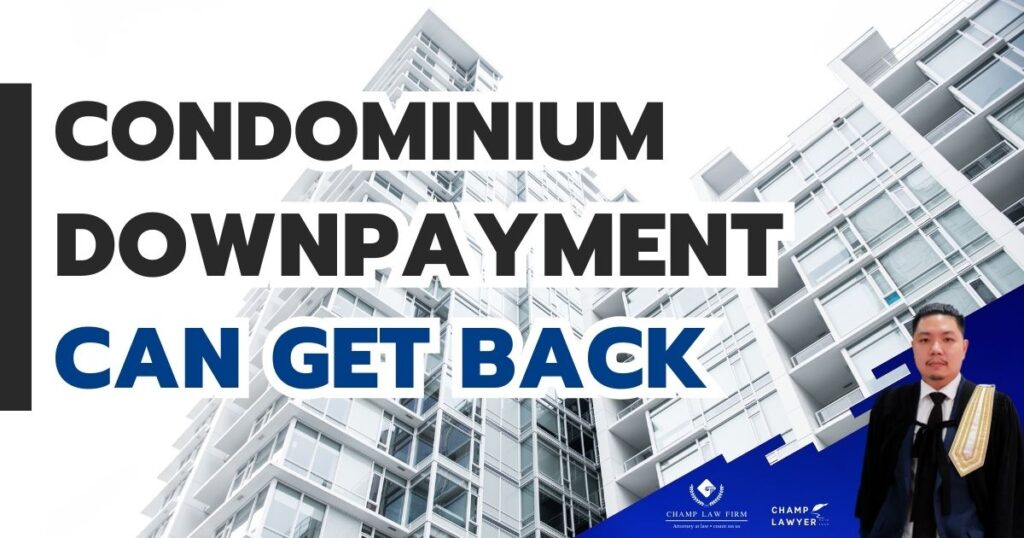Condo Down Payment refers to the amount of money that a buyer must pay to the seller when purchasing or reserving a condominium unit in a condominium project. Typically, this payment is a percentage of the sale price or the appraised value of the unit.
For example, 10%, 20%, or 30% of the sale price. The down payment must be paid before transferring the ownership rights of the condominium unit to the buyer. This down payment is considered as a reservation for the unit.
If you have already paid the down payment and encounter issues but wish to avoid breaching the contract, here are two initial steps
1.Find a co-borrower: In cases where our loan application is rejected by the bank. We need to come to an agreement with the potential co-borrower on whether they will provide compensation or not.
2.Selling the down payment or flipping is the act of transferring the contract between us and the project by having a new buyer replace us. We may sell it at a profit or at no profit.
For cases where we want to reclaim the down payment, the following considerations need to be taken into accoun
Case 1
In cases where the contract for purchase and sale does not stipulate an agreement that “if the buyer breaches the contract, all the money paid shall be considered as damages, and the project has the right to retain it,” in such cases, it is possible to sue for the full refund of the down payment.
Case 2
If the contract for purchase and sale specifies that “…if the buyer breaches the contract, the seller shall have the right to retain the down payment,” this provision transforms the down payment into a “penalty.” The project has the right to retain it if the buyer breaches the contract, but if it is deemed excessive, the court may reduce it. In this case, it is possible to sue for the refund of the down payment. Whether the refund will be in full or partial depends on the discretion of the court.
In both case , if the buyer fails to secure a bank loan or breaches any terms of the contract,However, if the project or seller breaches the contract,
we can also demand a full refund of the down payment along with interest and damages,
if applicable. In either case, both the buyer and the project have the option to negotiate and settle the matter amicably.
However, if negotiations fail, the case can be brought to court. The customer or injured party has the option to hire a lawyer to file a lawsuit without court fees, as it can be part of a consumer case.
Therefore, first and foremost, I recommend checking the signed contract to see what it says about the down payment. However, regardless of the circumstances, if the lawsuit for the refund goes against us and we end up being the unsuccessful borrower,the project does not have the right to seize our full down payment because it would be considered a “penalty,” and the court may order a reduction or partial refund.


Contact Lawyer CLICK
Send us an email
info@champ-lawfirm.comCall us
065 6060622
Chat with us
ID: @champlawfirmVisit at office
47/86 Pattaya Klang Rd.